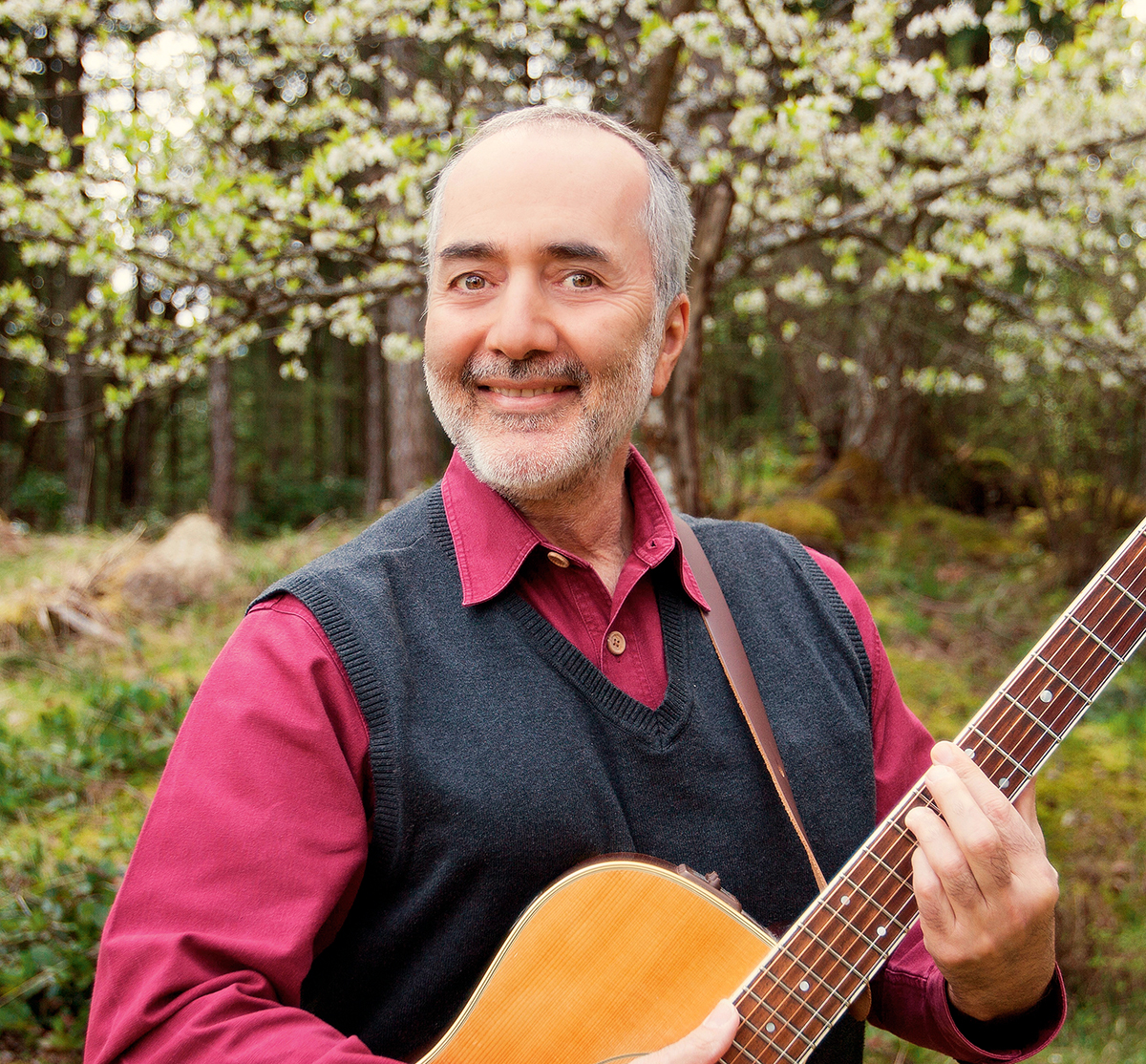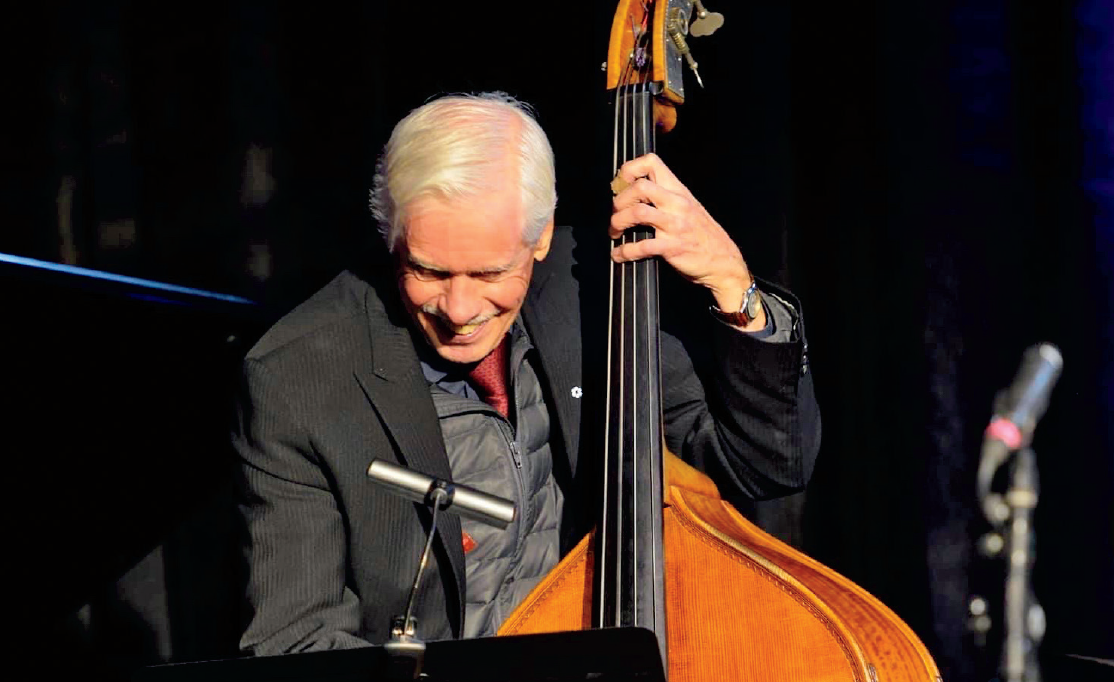The activist entertainer’s goal is a child-friendly world
By Peter Feniak
Featuring a sprightly melody, a captivating concept, and the mellow voice of a beloved singer, a song about a whale—a “little white whale”—was destined to make its mark. It begins:
Baby beluga in the deep blue sea,
Swim so wild and you swim so free.
Heaven above and the sea below
And a little white whale on the go.
As the 1980s began, “Baby Beluga,” a cheerful song for children written and recorded by Canada’s Raffi, was quickly embraced by the entertainer’s growing audience. When his Canadian-made albums found major-label distribution in the United States and his concert video went global, Raffi’s career soared. By the end of the decade, the Toronto Star paper would call him “the most popular children’s entertainer in the English-speaking world.”
“Baby Beluga” had a big birthday this past summer. Raffi explains from his home on Salt Spring Island, BC:
“My team and I were talking last year and we said, ‘Hey, you know, Beluga turns 40 in 2020. That calls for a celebration.’ So we thought of a bunch of things that we put into motion. And then along comes a surprise in the form of [cellist] Yo-Yo Ma [a Raffi fan with 18 Grammy Awards to his name] reaching out to me to do a collaboration in his YouTube series, Songs of Comfort.”
Their “Baby Beluga” duet (which they recorded apart, of course) is a charmer. Raffi’s voice is as warm, resonant, and welcoming as ever. And in accompaniment, the great cellist even approximates the stirring, authentic whale calls that begin the original recording. “I told him I had a new verse, a grown-up verse for the ‘Beluga’ grads,” Raffi adds. “He said, ‘Oh, yeah, you’ve gotta do that.’”
That closing verse says much about Raffi in 2020. He urges a “grown-up Beluga” to “sing a song of peace / sing a song of diversity / sing a song of child-honouring, social justice, climate action—we need to hear you!”
Still a popular entertainer for families and children, Raffi is devoted to the causes in which he deeply believes. The Baby Beluga album, he says, pointed to that direction.
“I think it was the beginning of my including environmental themes and a celebration of nature—what I call ‘this big, beautiful planet’—into my songs. Another song, ‘All I Really Need,’ was talking about clean air and clean water. Where would we be if we didn’t have clean air and clean water? And in Canada, it’s a shame that so many of our First Nations communities still lack clean water.”
Raffi Cavoukian (known to his fans of all ages simply as Raffi) was named to the Order of Canada in 1983 and has had four honorary doctorates conferred on him. He’s performed widely and travelled to international gatherings and climate conferences, meeting with leading figures from Mikhail Gorbachev to the Dalai Lama. Close to his heart is a joyous pilgrimage in 2012 to upstate New York to spend time with “one of my musical heroes,” the great activist/folksinger Pete Seeger, for “a little bit of singing, a lot of talking, and a lovely visit.” In concert, Raffi’s style resembles Seeger’s—smiling, interactive, with inspired singalongs, fellow feeling, and advocacy.
Raffi also continues to lead a business he began in his earliest days. Troubadour Music (raffinews.com) has information and offerings from books and games to music for “Beluga Grads” and “singable songs for the very young.” The website also outlines the inspired work of the Raffi Foundation for Child Honouring, whose online courses have been praised for their insight into early childhood development.
Raffi’s career began with his dreams of following James Taylor, Bruce Cockburn, and the other great singer-songwriters of the early ’70s. A talented teenager with a guitar, Raffi left home to go to the University of Toronto, then quit university in his second year to perform full-time. Engaging, with a soft, wistful voice, Raffi had some success in Toronto coffee houses, but he was joining a crowded field. Rewards were few and gigs paid little.
To promote himself, he started Troubadour and made his debut album, Good Luck Boy. His good luck included the support of his wife, Deborah Pike, his high-school sweetheart, a kindergarten teacher. Bright days were ahead, but there was tension for this newly minted folksinger raised in a strict Armenian-Canadian family. Raffi explains in his thoughtful way: “Each of us, I think, in early life, needs to answer the call of his or her own heart. I certainly answered the call of mine, which was to pursue music rather than the photography that my father was renowned for. It wasn’t easy for my parents to hear that. But I’ll tell you, when I made a name for myself entertaining children, they were so proud of that work.”
Singable Songs
Raffi was born in Cairo, Egypt’s sprawling capital, the middle child of Artin (“Arto”) and Lucie Cavoukian. His early years are described vividly in his autobiography (The Life of a Children’s Troubadour, Hushion House, 1998). His Armenian community had known suffering.
“Both of my parents’ families,” he says, “had to escape the holocaust—the Turkish Ottoman Empire holocaust of 1915 [known now as the Armenian Genocide]. It was by the skin of our teeth, you might say. People are quite moved when they read that. We escaped, we survived, and we thrived.”
East of Turkey and north of Iran, Armenia boasts a rich cultural past. It was the first country in the world to adopt Christianity (AD 301) as its official religion, and noted Armenians in Western culture range from director Atom Egoyan and balladeer Charles Aznavour to Kim Kardashian and Cher. But between 1914 and 1923, the nation was devastated. Ethnic violence caused the deaths of between 800,000 and 1.5 million Armenians—murdered or driven to fatal marches through the unforgiving Syrian desert.
Led by grandfather Ohanness, the Cavoukian family found refuge in Egypt. By mid-century, Raffi’s parents had expanded the photography business that Ohanness had launched. “Sundays at Studio Cavouk,” Raffi wrote in his autobiography, “were a veritable beehive of newlywed couples in wedding attire arriving for formal portraits.” Among Arto Cavoukian’s prestigious clients was Egypt’s King Farouk. But with Farouk deposed in 1952, the political situation changed. In 1958, the Cavoukian family—now including three children, Onnig, Raffi, and Ani—emigrated to Canada.
“When you go from playing in the Cairo sands to the frigid temperatures in the winter in Toronto, it’s quite a shock to the system,” Raffi says. “But, hey, there I was, watching the Maple Leafs on black-and-white television. That was my socialization to the Canadian culture.”
Early on, he was “the pudgy little Armenian kid with the funny name who couldn’t play softball or ice-skate and brought funny-looking sandwiches to school.” But he was happy to be freed of the authoritarian ways of his school in Cairo, where, he wrote, “it was not unusual for me to be hit from time to time or mocked for reasons I couldn’t understand.” He was, as his mother often said, a sensitive kid with “the heart of a poet.”
Early on, assets were limited and clients few in the home-based Studio Cavouk in North Toronto. But the excellence of Arto’s colour photography earned the enthusiasm of some well-placed patrons. The family’s fortunes rose. In the 1960s, the Cavouk portrait studio was a fixture in the chic new Colonnade Development on Toronto’s Bloor Street. Lucie worked with the clients who came in for sittings, and the children were enlisted to help. Ultimately, Onnig, the eldest, joined the profession, continuing the Cavouk studio with distinction. The youngest became Dr. Ann Cavoukian, an important public servant with three terms (1997 to 2014) as the Information and Privacy Commissioner of Ontario. Raffi was a folksinger, whose luck would grow.
To earn extra income, Raffi performed in the Mariposa in the Schools program, named for the famed Ontario folk festival. Then his mother-in-law, Daphne, who ran a nursery school, invited him to come to play for preschool kids. Unsure at first, he found he had a special rapport with them. He found joy in children’s songs and welcomed the youngsters into singalongs. His 1976 album, Singable Songs for the Very Young—including such singables as “Down By the Bay” and “The More We Get Together”—proved a milestone. Promoted mostly by word of mouth, the record sold and sold. He released More Singable Songs in 1977 (with tracks including “Six Little Ducks” and “Workin’ on the Railroad”). As his kids’ concerts began, Raffi the grown-up singer-songwriter gradually became the magical troubadour who sang for the young.
Child Honouring
Raffi and his Troubadour team enjoyed their growing success. They also took the mentorship of children seriously. Their position was that interactive singalongs were good for kids, long hours in front of television screens were not; inclusiveness and diversity matter; kindness counts. Raffi wouldn’t enter his work for the Juno Awards’ “best children’s album”; he didn’t believe it should be a competition. And for Raffi and his team, commercial marketing directed to the very young was wrong. That spirit continues. Raffi explains a fairly recent Hollywood pitch to make “Baby Beluga” into an animated film.
“The producers of the movie Shrek approached my team. We were kind of flattered momentarily, but we knew the conversation would be a short one, because we asked, ‘Would such a film be marketed directly to young children through fast-food joints and other outlets?’ They said, ‘Yeah,’ and we said, ‘We can’t be a part of that.’
“It’s not ethical for any company to advertise any product directly to young children. They’re not old enough to understand what’s being thrown their way.” The Raffi Foundation for Child Honouring expands on those principles.
Raffi’s career grew and grew, but the performer’s autobiography revealed that it wasn’t always easy being Raffi.
“The perks of celebrity,” he wrote, “are offset by the tremendous demands: constantly in front of the camera, expected to look and act your best. A children’s entertainer has to be a model of good behaviour.” Everyone saw Raffi as easygoing and kind, but, he noted, “When I was tired and stressed to the limit, it was hard to be nice.”
Problems grew. His successful concert videos were routinely used for babysitting-by-TV, a practice Team Troubadour abhorred. The videos also encouraged younger kids—two and under—to come to see Raffi. Often noisy and prone to wandering but not old enough to sing and clap along in concerts, toddlers became a distraction. His concerts were so in demand that, he wrote, “the grind of the road wore me down.”
Raffi decided he had to take a year off. His marriage collapsing, he relocated to the West Coast. The Washington Post caught Raffi there in a new Vancouver apartment at a time of high anxiety; The Post’s unkind portrait pictured an exhausted entertainer ready to turn his back on his audience. The one-year sabbatical lasted three more years. Raffi notes today:
“I wouldn’t be the first entertainer to have needed a break. I’m glad I took it. It was expansive for me. My life did change. It started a whole new chapter. That’s how life is. Life is change. I embraced it.”
He returned with new music that reflected his growing environmental interests. “Evergreen, Everblue” was a fine new anthem. He broadened his repertoire while retaining the popular singable songs. The urge to be an activist entertainer tugged at him.
“In 1997,” he says, “this ‘child honouring’ vision came to me and changed my life yet again.” The non-profit charity Raffi Foundation for Child Honouring combines two of his passions: “Our slogan is ‘Respecting Earth and child.’ When you want to do the best for our children, you want to do the best for their habitat—Planet Earth. You’ve gotta be respectful of the biosphere that provides life to all of us. That’s what I’m all about in my music, in my values; that’s what I exhort my fans to embrace.”
Raffi exhorts, but he does it with understanding. In the early weeks of the pandemic, many noticed a “sky more blue” as air travel halted. Raffi, too, noted the “clearer air, even on Salt Spring, looking back to Vancouver. I think it wakes people up. But whether that stays with them, I don’t know, because there are a lot of pressures on people. Let’s be compassionate. Folks need to put food on the table, a lot of businesses are struggling. It remains to be seen whether the pandemic moves us towards the green recovery that we all deserve and hope for—for our children and grandchildren. If I thought yelling would do any good, I would do it myself. But I think inspiring people is the way to go. And you can do that with song, a song that stays in someone’s heart and mind. That’s not a bad way to go about things as a troubadour, you know.”
The Spirit of Service
His beloved parents passed within 12 hours of each other in 1995. He’s been a Canadian citizen since 1963—and is now a Vancouver Canucks fan. Still, Raffi remains deeply connected to his family’s past:
“Oh, yeah, the richness of Armenian heritage is still a part of me. I speak Armenian with my brother and various family members from time to time as we’re able. And I’m grateful that I was born to a family where music was… I mean, my father was a great musician; he sang and played the accordion like you wouldn’t believe. He played violin and balalaika, as well. My mother was a great storyteller. They were wonderful, very impressive people.”
Raffi tours solo now, just him, his guitar, and the magic he has with people. His concerts come in clusters, not in drawn-out tours. He remains devoted to sharing fun with his audience through his singable songs:
“I always remember that I’m there to sing with people and to share the joy of music that they love. In the spirit of Pete Seeger, of my values and who I am, I must say we’re living in times when humanity at large is called to clean up our nest, change our economy. I feel so grateful that I have an opportunity to reach out and say, ‘Hey, folks, we’re all in this together, and please speak up: we need to hear you.’”
Though Raffi says “I’m in the autumn of my life; I’ve just turned 72,” he remains youthful and fit, combining yoga, weights, and workouts with long walks “with my beautiful dog, Luna, and friends.” He meditates each morning “to calm the mind and bring peace to the heart. I live my life in the spirit of service to the greatest good. That’s how I celebrate every morning when I give thanks for the new day.”
Music remains central. There’s a new collaboration with the great Yo-Yo Ma coming. His list of recordings continues to grow. His Good Luck Boy recording from his folkie days is long out of print, but is he still that—a “good luck boy”?
“Well,” he says, the smile apparent in his soft voice, “you might say I am. I fall uphill. I’m counting my blessings, that’s for sure.” I
To see Raffi’s “Baby Beluga” video, featuring Yo-Yo Ma, visit YouTube and search for “baby beluga Yo-Yo Ma”—or just click the link!
Photo: Billie Woods.






